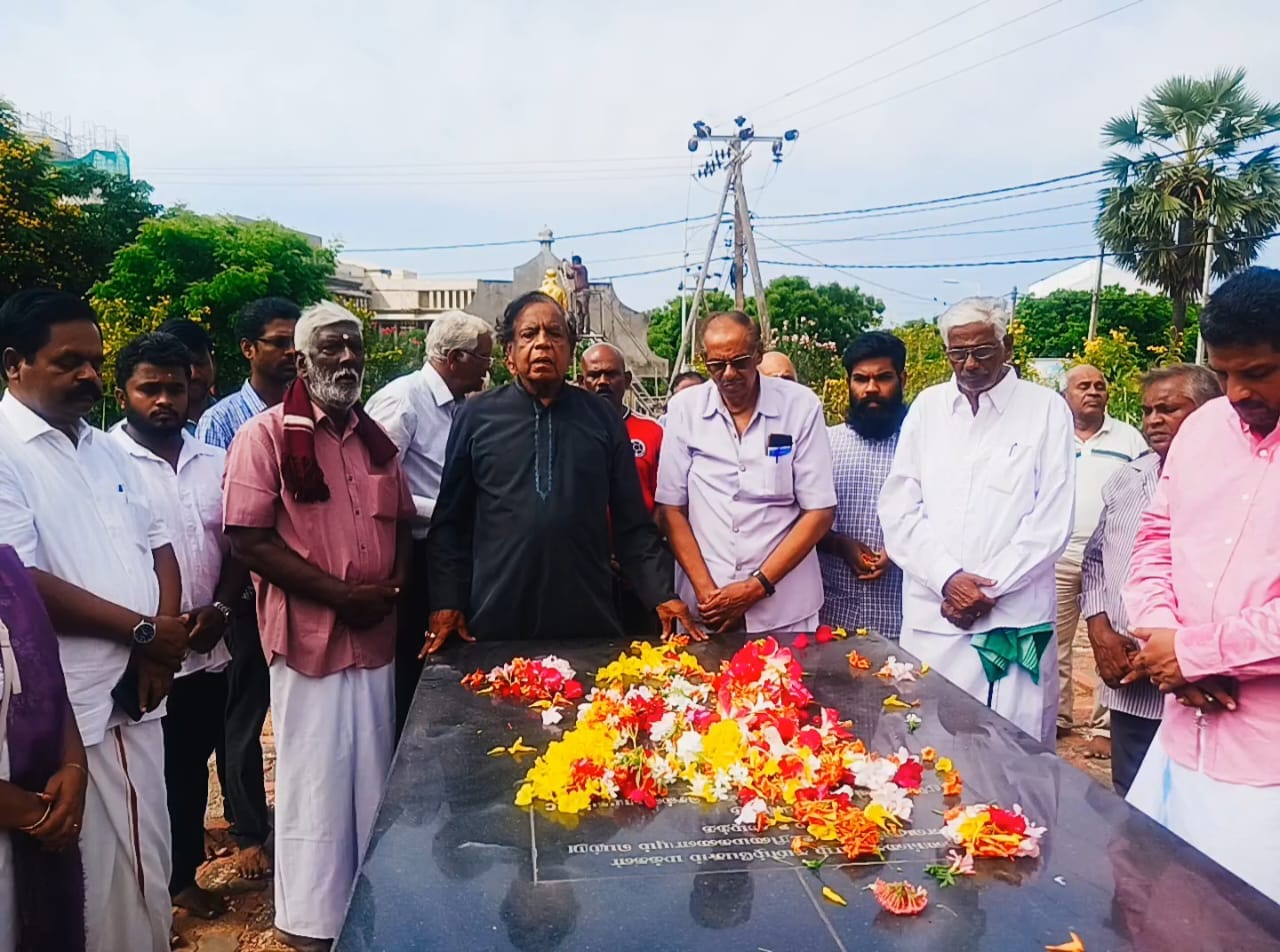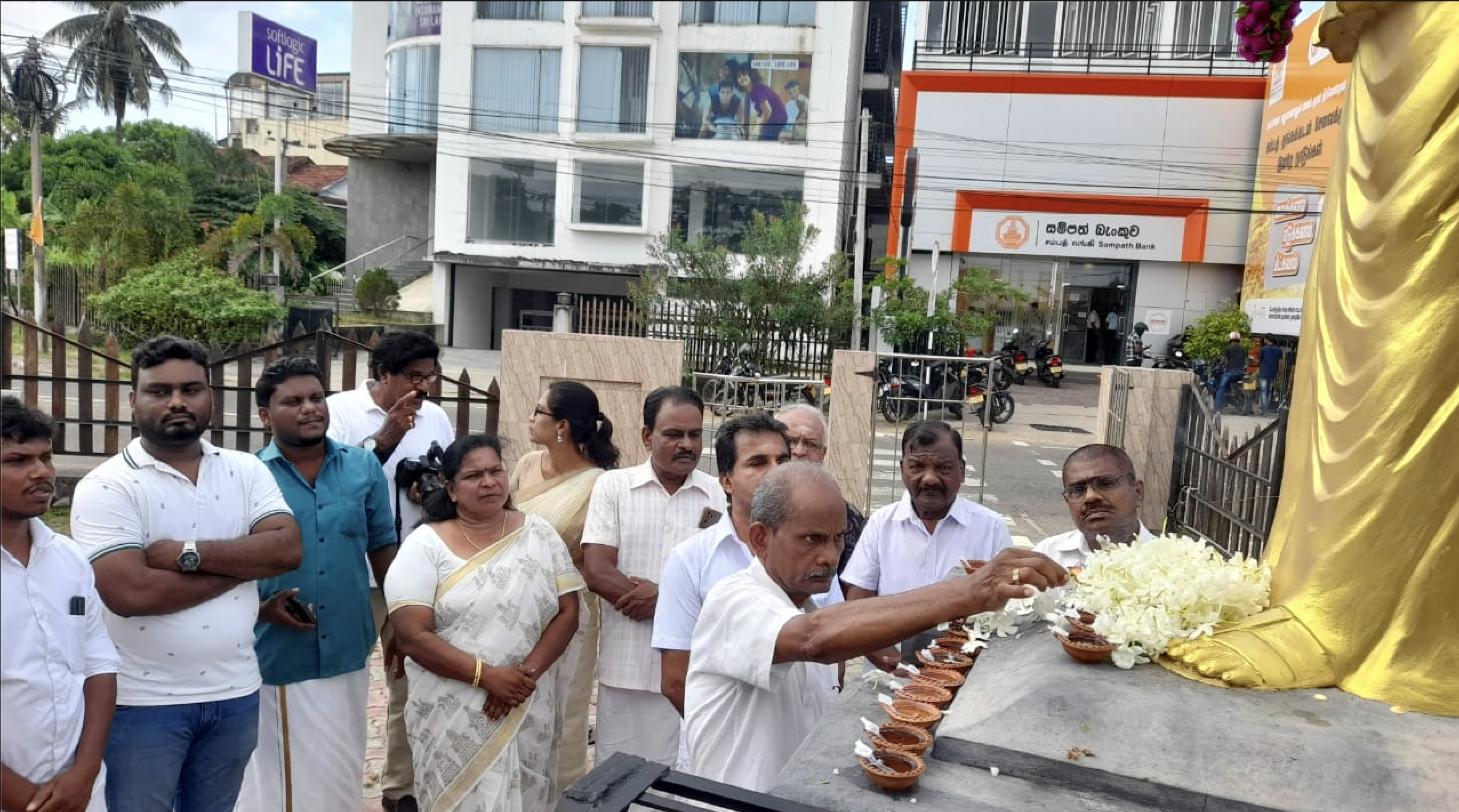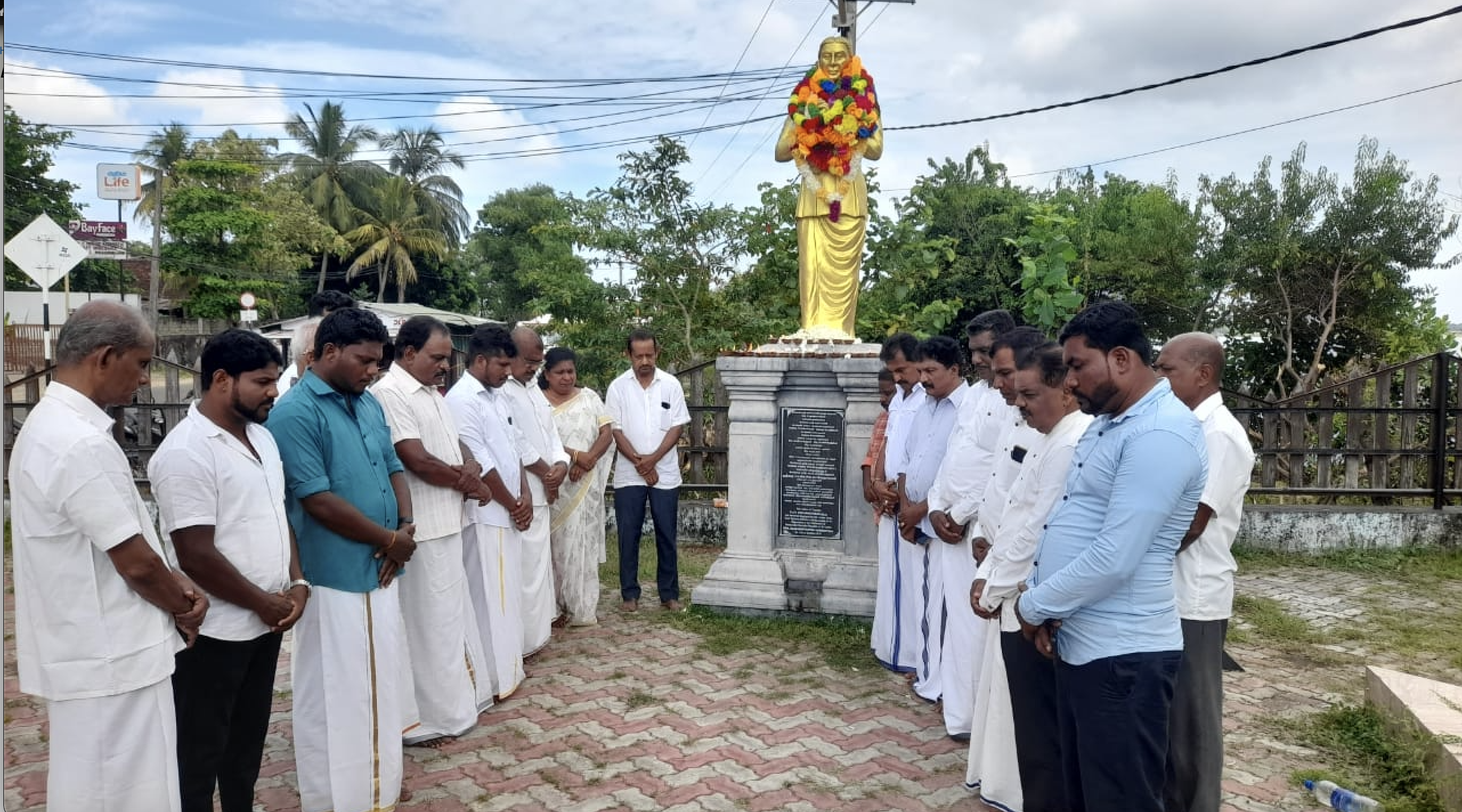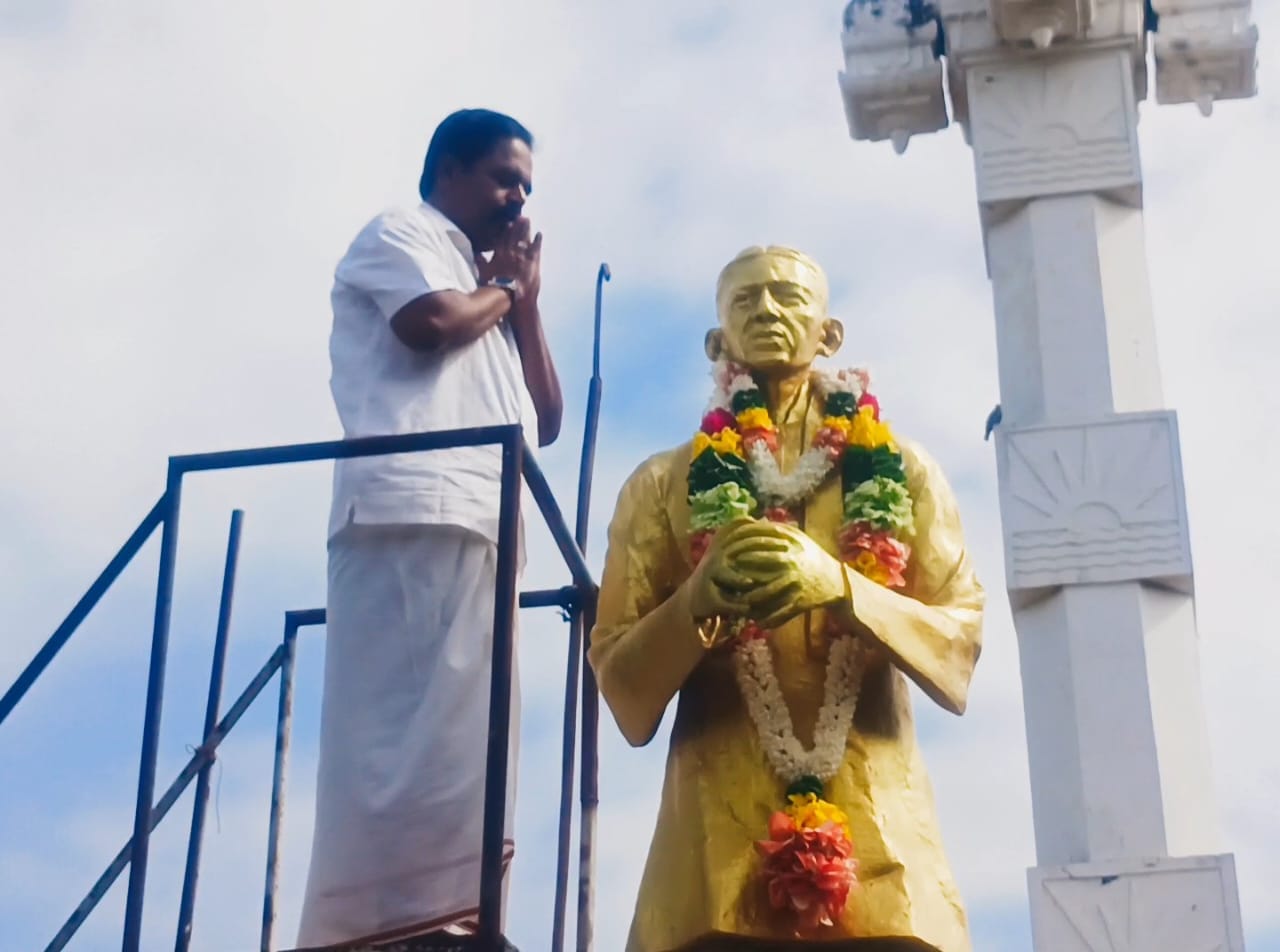
SJV Chelvanayakam, fondly known as Thanthi Chelva, is being remembered in Batticaloa and Jaffna today to mark 47 years since his death.
Chelvanayakam was responsible for spearheading the Vaddukoddai resolution, which was overwhelmingly ratified by the Tamil votes in the 1977 parliamentary elections.
In Jaffna, Ilankai Tamil Arasu Katchi (ITAK) leader S Shritharan and former MP Mavai Senathirajah were present at a memorial event at the Thanthai Chelva Memorial Square.

ITAK's youth wing held a memorial event in Batticaloa, where lamps were lit to commemorate the father of Tamil nationalism. Former ITAK MP K Thurairajasingham and Mrs Thayalagowri, the secretary of ITAK's women's wing in Batticaloa were also present at the event.

After representing the Tamil people for five general elections and experiencing repeated disappointments in over 3 decades of negotiation with the Sinhala majoritarian government, Chelvanayakam formulated the Vaddukoddai resolution, which remains a cornerstone of the Tamil movement for self-determination.
In the late fifties, Chelvanayagam signed the first ever pact between the Sinhala and Tamil community to resolve the issue of Tamil political demands. The Bandaranaike-Chelvanayam pact, signed in 1957, was abrogated by SWRD Bandaranaike due to vehement opposition by Sinhala parties.
Following another decade of civil disobedience and negotiations, Chelvanayagam signed a pact to settle Tamil political demands with the then UNP leader Dudley Senanayake. The 1965 general elections, which preceded the signing of the Chelva-Dudley pact, saw no Sinhala political party obtain an absolute majority in parliament. Despite having the support of the Tamil political parties in parliament Mr Senanayake abrogated the pact as vehement opposition arose in the Sinhala South.
We need your support
Sri Lanka is one of the most dangerous places in the world to be a journalist. Tamil journalists are particularly at threat, with at least 41 media workers known to have been killed by the Sri Lankan state or its paramilitaries during and after the armed conflict.
Despite the risks, our team on the ground remain committed to providing detailed and accurate reporting of developments in the Tamil homeland, across the island and around the world, as well as providing expert analysis and insight from the Tamil point of view
We need your support in keeping our journalism going. Support our work today.
For more ways to donate visit https://donate.tamilguardian.com.


